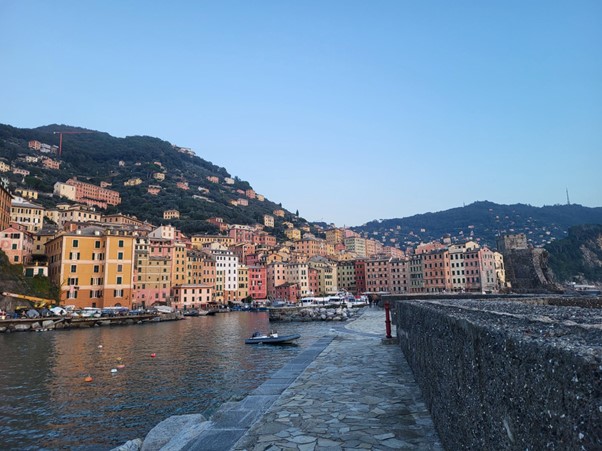post by Nimisha Parashar (2023 cohort)
Reflecting on my placement at environmental charity Earthwatch Europe.
My three-month placement with Earthwatch started in June 2024. My role particularly involved working with the Innovation team at Earthwatch. This team is responsible for research activities in the fields of citizen science and environmental science, within the larger environmental charity that Earthwatch is. With multiple ongoing projects, such as ProBlue, BENCHMARKS, CircleUp, More4Nature etc., the team’s expertise spans across multiple disciplines.
Some of these projects that the Innovation Team is tackling combine game-based approaches with citizen science, which were quite relevant to my PhD. Although I am particularly concerned with gamification (applied to citizen science) for pro-environmental behaviour change, it was useful to understand which projects exist currently in the wider field of citizen science. Additionally, understanding the practicalities of these projects, their execution and funding experience led to an engaging and fruitful experience at my placement.
CROPS and EU-funded projects
A completely novel experience was to learn how the EU-funded projects work, outside of an academic environment. Each project seemed to be divided into different ‘work packages’ or subtasks with separate deliverables and separate due dates. This meant I was working on different subtasks, for different projects that fulfilled different aims of a bigger project overall.
One such project I contributed to was CROPS, a project aimed at upscaling citizen science. My task was to do a literature review of gamification strategies for scaling citizen science. This aligned with different work packages (WP) within the project, such as the WP aimed at coming up with design protocols for upscaling, and the WP aimed at figuring out communication strategies for upscaling and many more.
In the beginning, it seemed like a straightforward project, but the more I engaged with it the more complexity started to emerge. From finding what upscaling could mean, finding how different projects have achieved it, what are the barriers to upscaling, how could one create guidelines for upscaling, to how the project can have a lasting impact. Many such questions started to emerge. The project was also collaborative, which meant different organisations, based in different countries across Europe, tackled different bits of the project. My review, a task I was tackling alone could not have had an impact unless discussed with other project partners as well.
To understand this impact, and the broader implications of this review, I was fortunate enough to get an opportunity for direct contact with all the project partners. At the end of my placement, I presented my work to all these project partners, gaining their feedback. Not just the location of the meeting, which was a beautiful seaside village in Italy (Camogli), but my interactions with the friendly and helpful project partners were equally beneficial for me. It helped me realise how the review impacted the field of citizen science, and how eventually my PhD can do the same. These face-to-face interactions provided important feedback, raised crucial questions and also gave me a chance to form connections.

CircleUp and other tasks
Another task that was quite relevant for my PhD was to collaborate with another PhD student working on CircleUp, a project aimed at promoting circular economy in households. This student is particularly interested in developing a game that can instil a sense of community in households participating in the project, making it easier to continue their circular economy journey. As I remain unsure of what my PhD will ultimately involve i.e. will I develop a prototype or not, her work showed what the process of developing the prototype is like. Also directed by the work package deadlines, her PhD journey looked like an interesting alternative to mine.
Other tasks that I ended up doing at Earthwatch, while unrelated to my PhD, were more of an indicator of what working for an organisation like Earthwatch entails. There seemed to be a mix of administrative and research tasks to do, each useful for the project in its own way. On one hand, there was a lack of hierarchy in terms of which tasks had to be done by whom and on the other hand, there was a lack of control over what kind of research or project-related task one was assigned.
Final Thoughts
My placement was completely remote, which meant missing out on some in-person interactions, interesting collaborations, and water cooler moments. However, it also meant a lot more freedom in organising my time. At times, it was challenging to completely break away from my PhD but on days when I had proper boundaries in place, it was a welcome break from thinking about the PhD. It was also nice to have small discrete tasks that could be finished quickly, as opposed to a long research project (i.e. my PhD) that can take 4 years to finish.
Overall, Earthwatch was a welcoming place that did its best to tailor the placement experience to my research interests.

